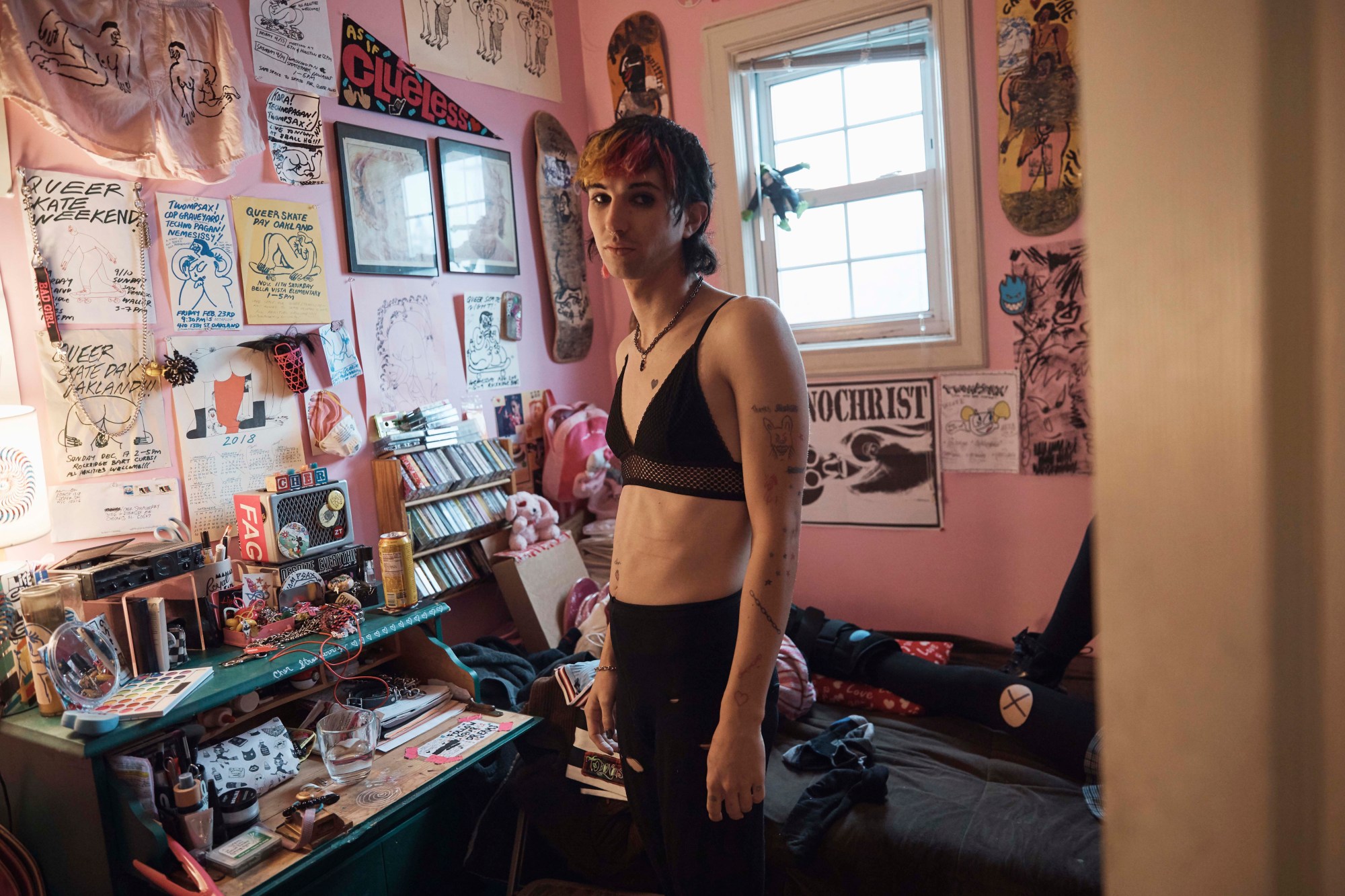A few years ago, photographer Magda Wosinska was on a road trip across California when she decided to stop in to visit a pro skater friend of hers and noticed a distinctive skateboard hanging in his garage. “It had a bunch of nude figures painted on it,” Magda remembers, “and I said, ‘What’s that?’ He told me it was this new skate company that had been started by a bunch of queer skater kids and showed me a few of their Instagram accounts. I started following them, and before I knew it, we were meeting up.”
The company was Unity Skateboarding, a skate collective established by partners Jeffrey Cheung and Gabriel Ramirez in 2013. What started as a ragtag group of queer friends getting together to skate every few weeks had, by this point, blossomed into a small office in Oakland from which the duo handmade zines, sold boards and organised regular queer skate days for local kids to come together in a safe environment.
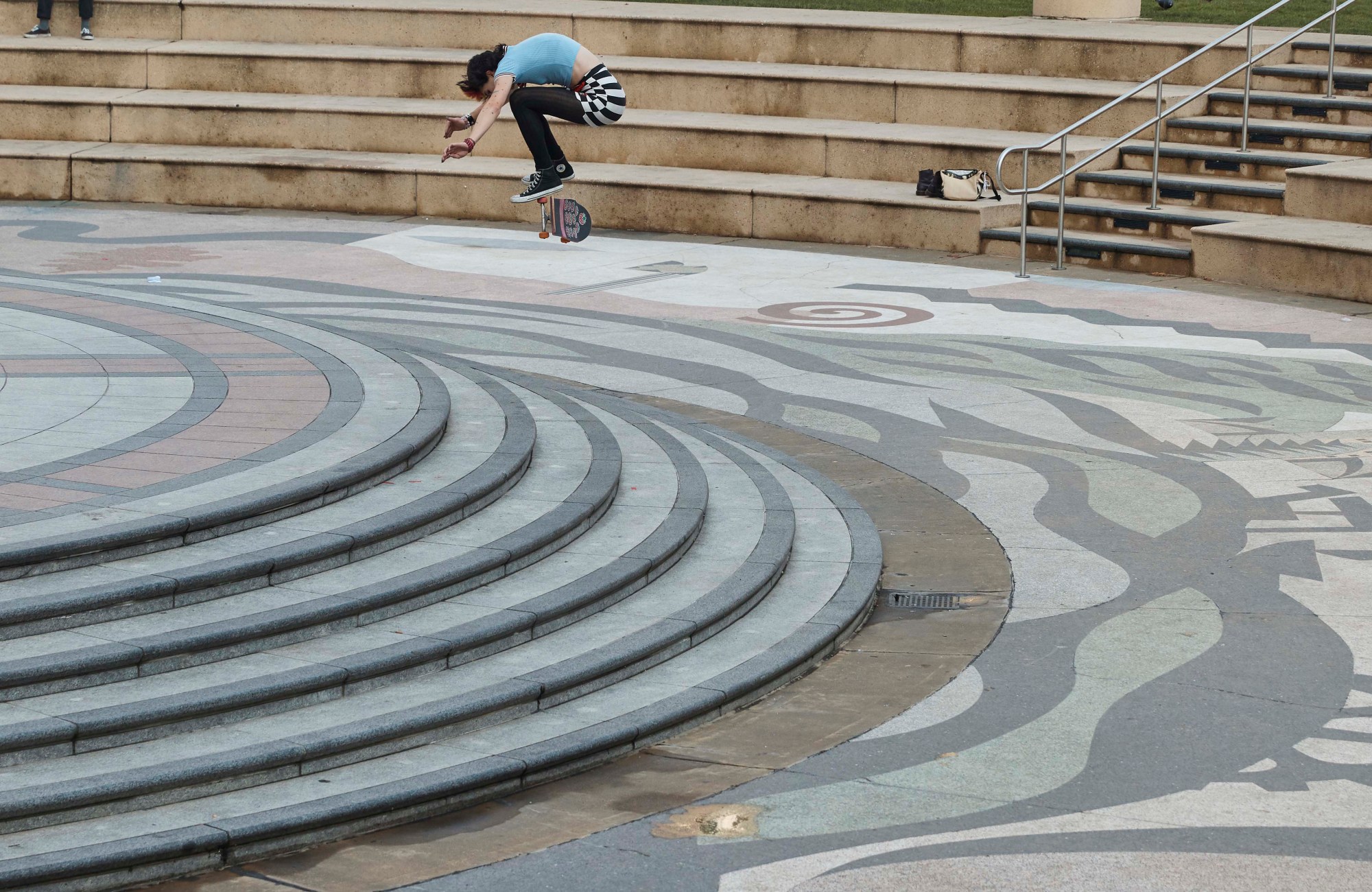
After meeting some of the crew, Magda found herself drawn to one person in particular: Cher Autumn, a transgender woman whose previous life as the frontwoman of various punk bands made her click with Magda instantly. “I saw pictures of her skating in fishnets and miniskirts, and I just thought, that is so cool.”
Having emigrated from Poland to Arizona as a child and taken up skating as a means of escape, Magda related to Cher’s status as an outsider girl in an oppressively masculine world. “When I first started going to the skate park, all of the kids were older and they were all guys. In Arizona in the 90s, I maybe saw one other girl skate the whole time. I felt like an outcast at school, an outcast in American culture, an outcast in skating. I dressed as much as I could as a dude just to blend in — Cher to me was this amazing example of just saying: who cares. Be yourself.”
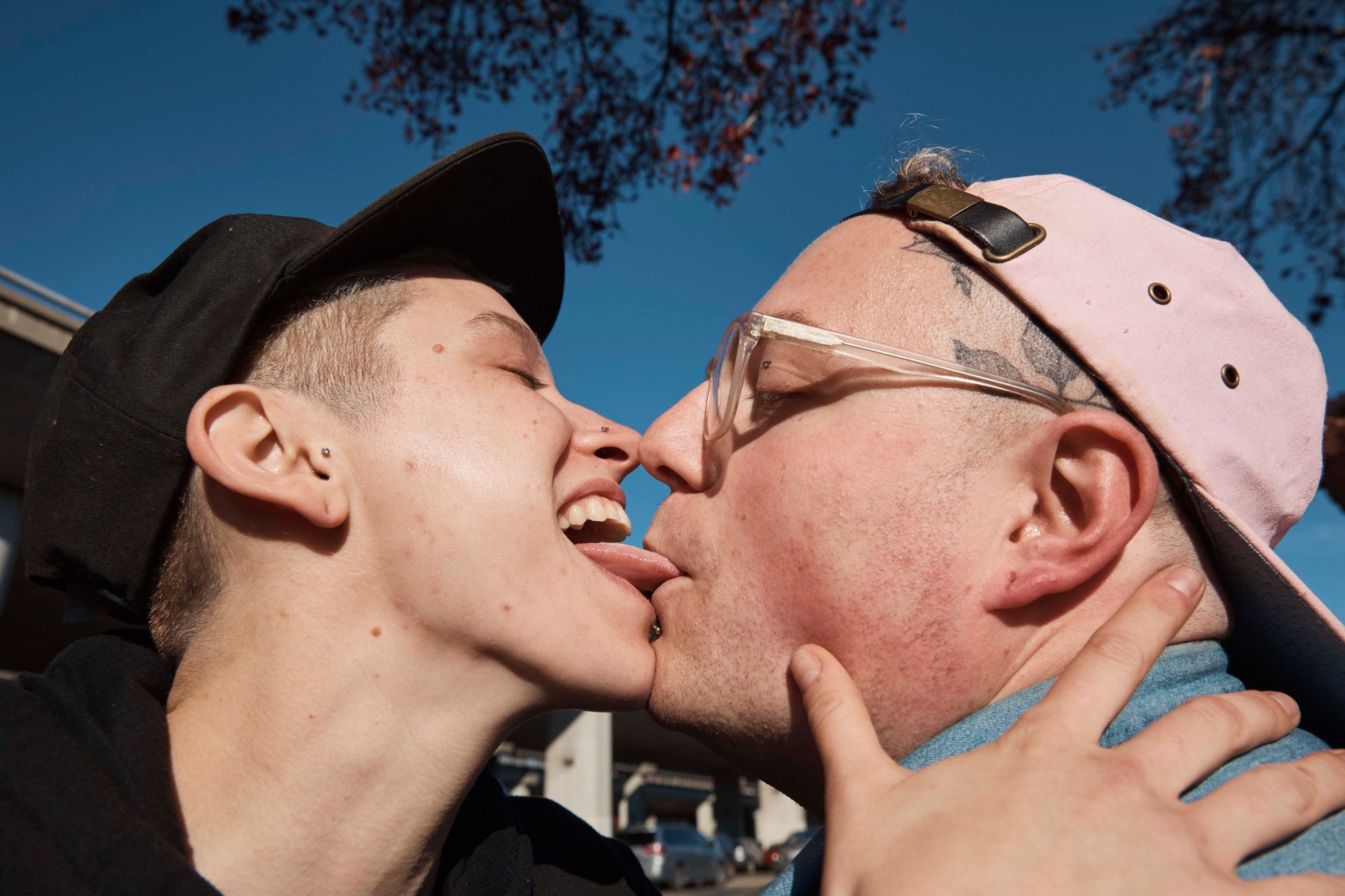
Cher also skated as a kid, even taking the under-12s prize at the California Amateur Skateboard League, but a series of injuries as a teenager led her to quit skating for good — or so she thought. “I started playing music and smoking pot with all the punk kids in my town,” says Cher, laughing. “I became one of the kids that hangs out behind the skate park rather than one of the kids that hung out at the skate park.” She met Jeffrey and Gabriel through the music scene, and slowly they began to go out and skate again. One day, they decided to take things a step further and start flyering to attract other queer kids to join them. “We did a few meet-ups and then on the fifth or sixth one, there were like hundreds of us,” Cher adds. “All of a sudden it was like, oh my god, this is big.”
It’s this scene that Magda has captured in an ongoing series of images, along with a short film that offers an intimate portrait of Cher’s world. “When I first met Cher she hadn’t transitioned,” Magda adds, “so it was this amazing thing to watch, the support of her community as she became who she’s been waiting her whole life to be.”
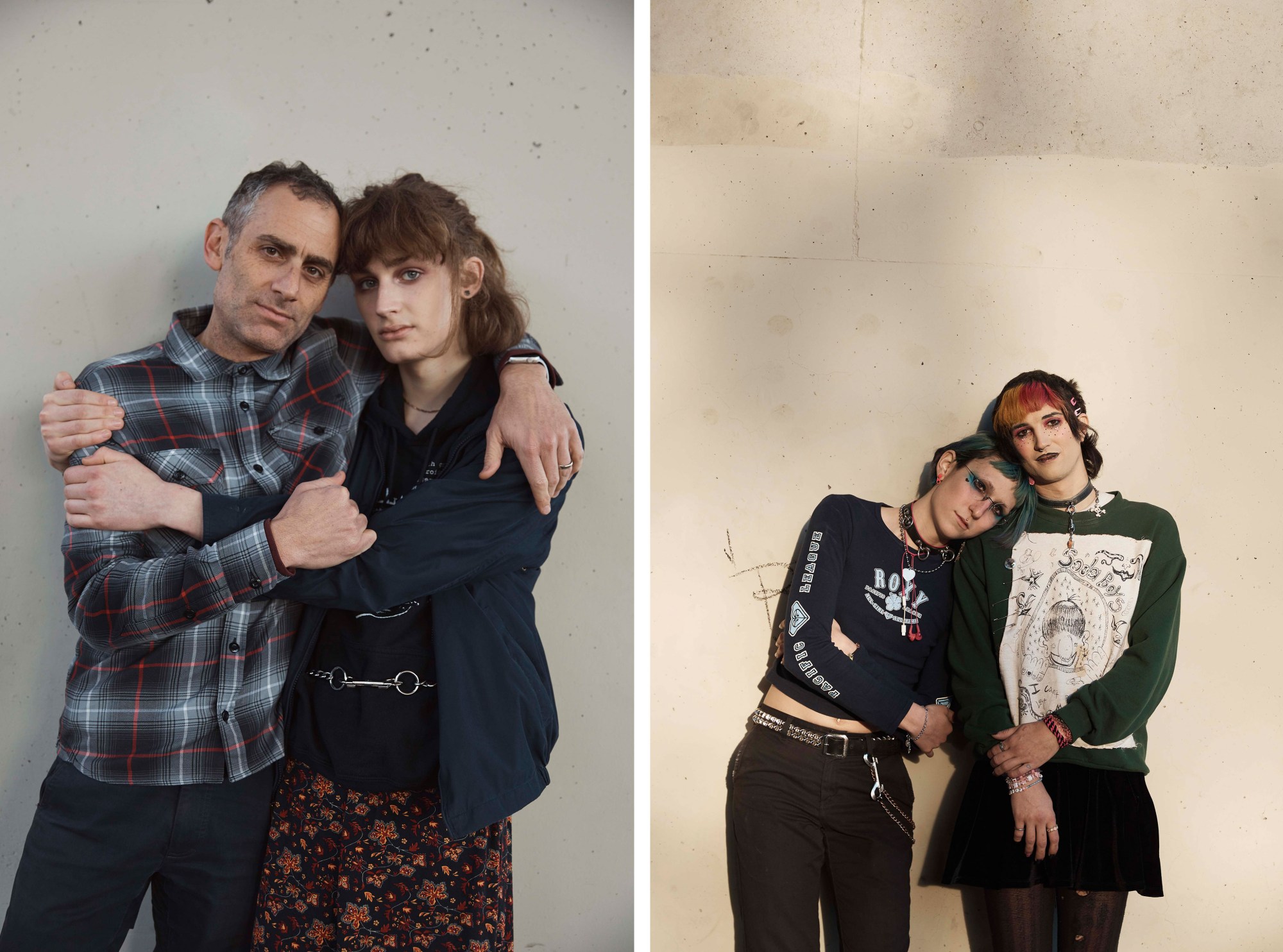
Unity’s unique magic stems from this tight-knit sense of community: while the world of skating has its own level of appeal as a means of making friendships and connections, for LGBT+ kids who feel like outsiders in today’s America, the combination of skating and queer friendship makes it doubly powerful. “I’ve been pretty open about my queerness since I was 16, probably,” Cher says, “but I didn’t have a group of queer friends until Unity. Queer kids just show up to these Unity events because they know there’s going to be a bunch of other queer kids hanging out, it doesn’t even really matter if they skateboard.”
The inherent openness of Unity from the very beginning — Jeffrey has been known to hand out free boards to queer kids who want to get into skating, while another member of the crew goes along to meet-ups an hour early to help coach beginners — also marks it out as starkly different from the usual skate park dynamic. “I remember in Arizona feeling like this annoying 13-year-old girl who would show up at the skate park and get in everyone’s way,” Magda says. “But after three years of me just being there all the time, I landed my first shuv-it and saw the look on their faces, like they finally realised I was dedicated.”
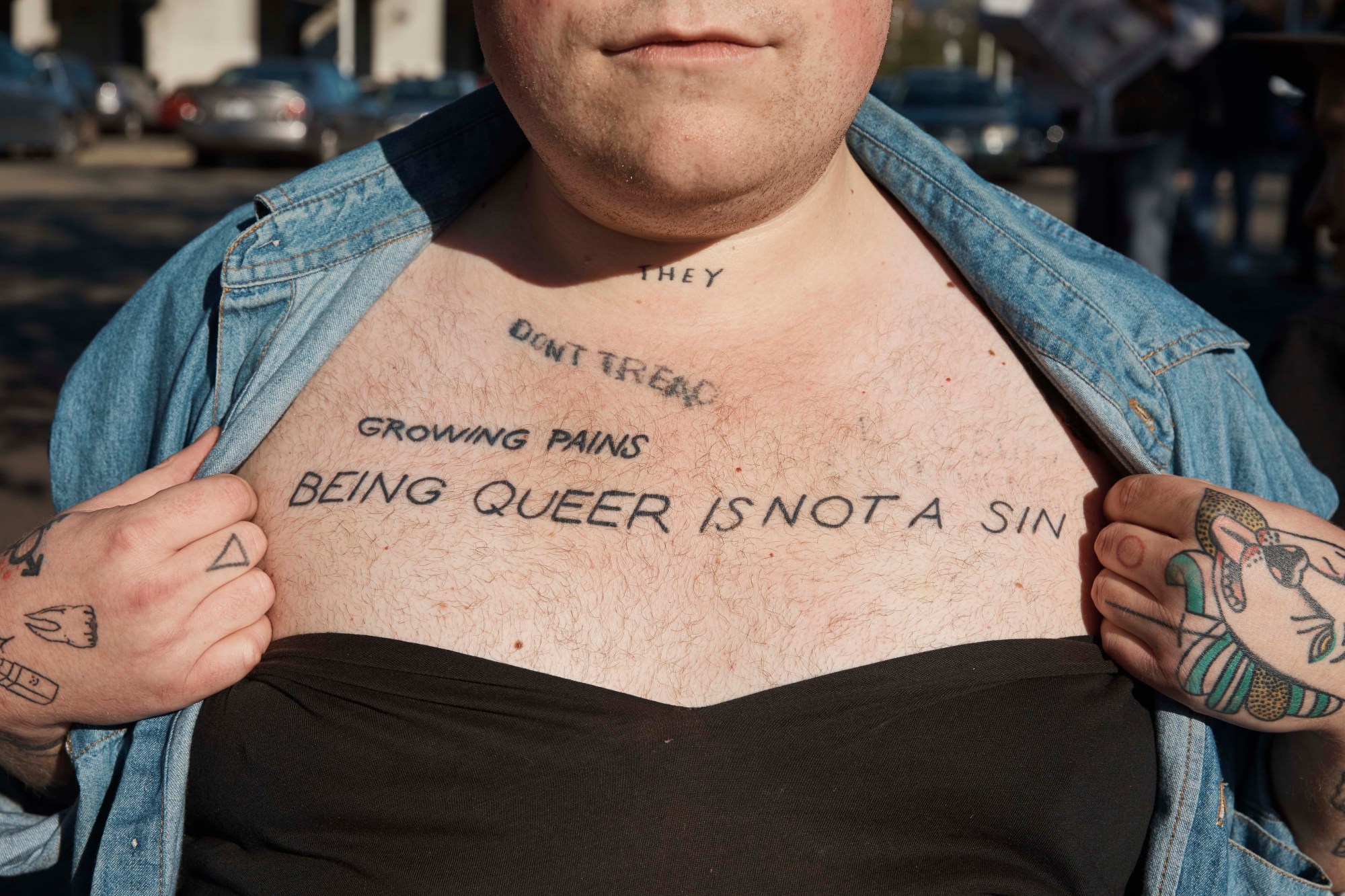
“Skateboarding was so male-dominated for so long, it wasn’t very inclusive,” Cher continues. “People didn’t say, ‘Oh, it’s your first time trying skateboarding — hell yeah! Let me help you out here. Maybe you shouldn’t go down this giant ramp.’ Nobody told you anything.”
Magda’s images capture the palpable sense of excitement that comes from the unique friendships formed by the communal activity of skating. Where physical spaces for queer people have historically revolved around clubbing, it’s a rare and moving sight to see queer life move from the underground and into the daylight — particularly at a time when the skate scene can still feel threatening to outsiders. “I still don’t go to the skate park down the street from my house,” Cher says. “Now we just take over entire skate spots in the day time. If we make a flyer, it’s guaranteed that tons of queer kids will come to take over that spot, and there will be enough of us to make it feel pretty safe.”
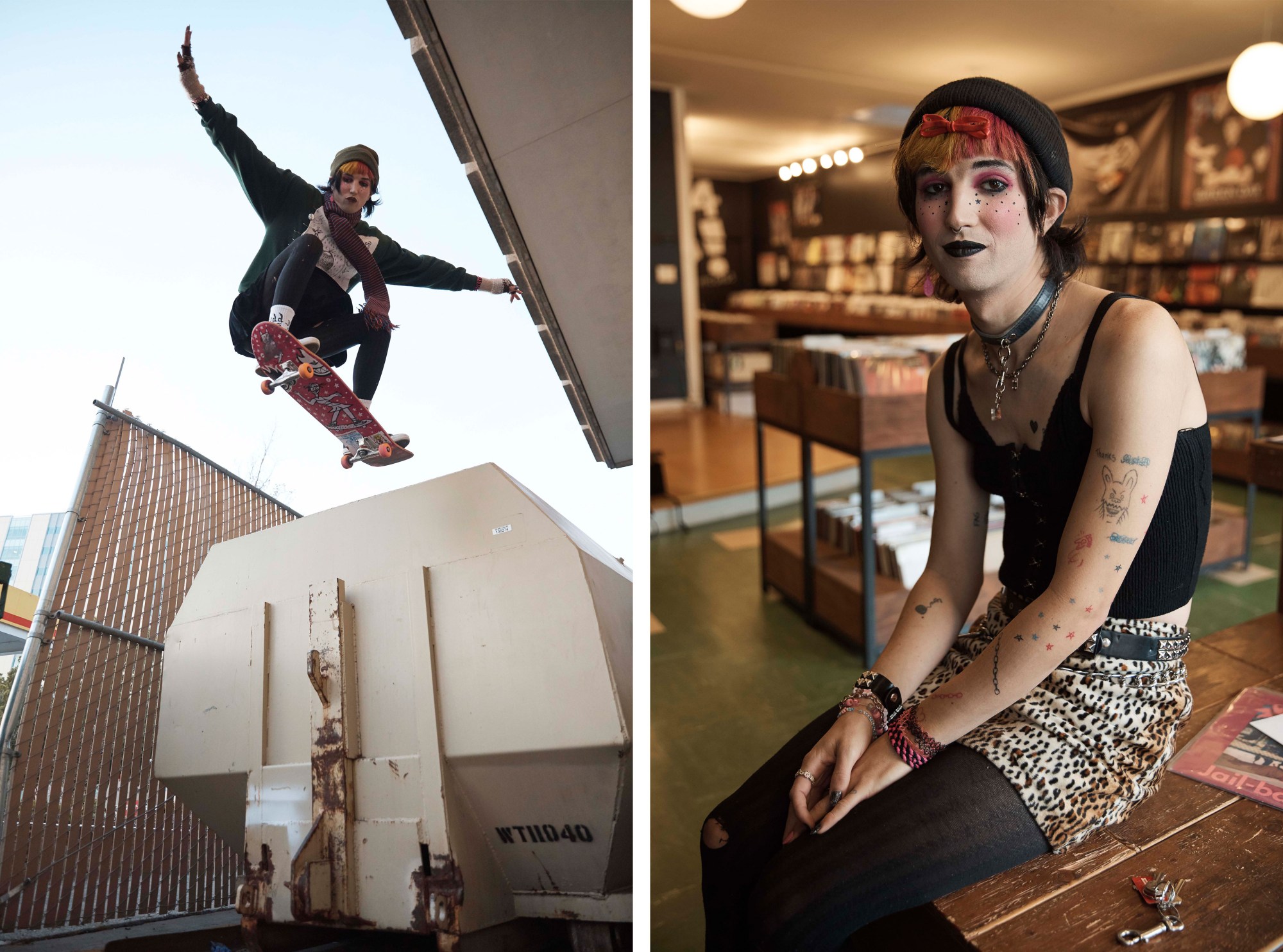
Six years on from Unity’s first meet-ups, Magda’s photographs have given Cher a moment to reflect on how far she’s come. “I have my own board that I designed, and I actually didn’t realise this, but I’m the first trans woman ever to have her own skateboard. It’s nuts. The Smithsonian hit me up and were like, this has never happened before and we really want it for our collection — so I signed the deeds and mailed it off this morning.” It seems that Unity isn’t just forging a new future for queer kids, but making history too.
